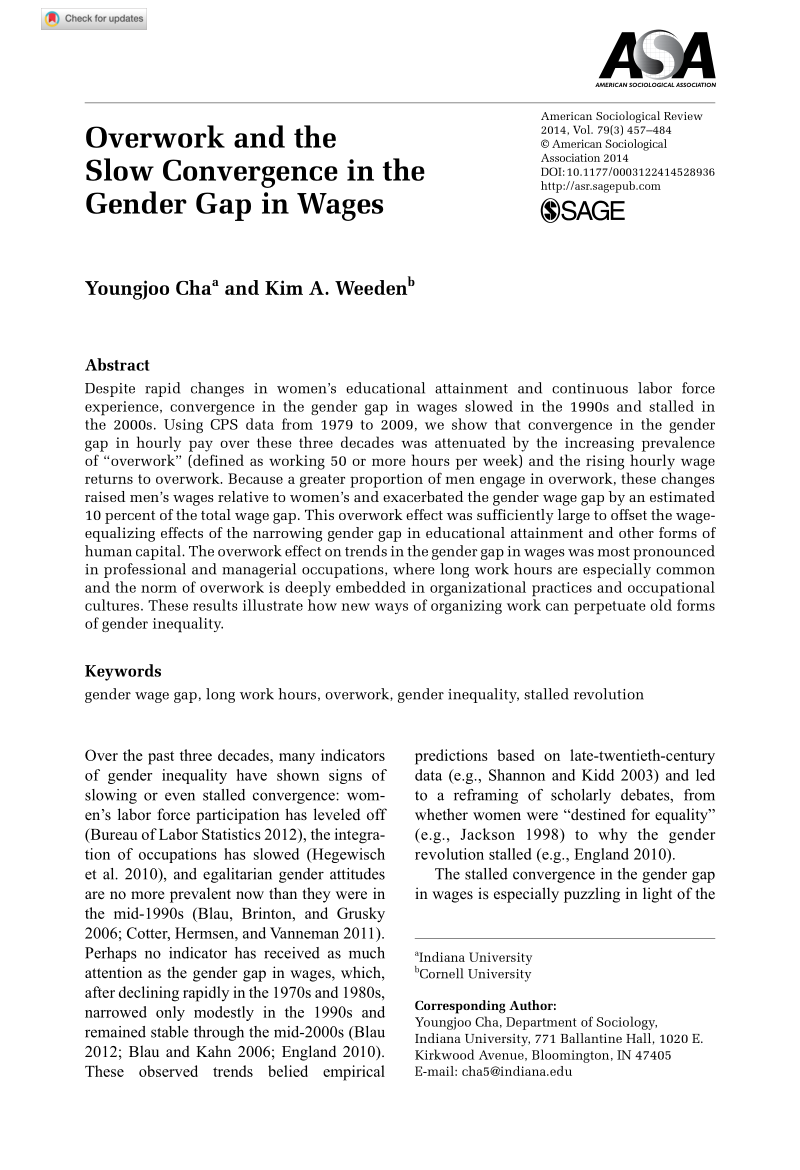American Sociological Review study finds that men engage in more overwork than women.
- Type
- Academic / Technical Report
- Source
- Youngjoo Cha Non-LDS
- Hearsay
- Secondary
- Reference
Youngjoo Cha and Kim A. Weeden, "Overwork and the Slow Convergence in the Gender Gap in Wages," American Sociological Review 79, no. 3 (2014): 457-484
- Scribe/Publisher
- American Sociological Review
- People
- Youngjoo Cha, Kim A. Weeden
- Audience
- Reading Public
- Transcription
Abstract
Despite rapid changes in women’s educational attainment and continuous labor force experience, convergence in the gender gap in wages slowed in the 1990s and stalled in the 2000s. Using CPS data from 1979 to 2009, we show that convergence in the gender gap in hourly pay over these three decades was attenuated by the increasing prevalence of “overwork” (defined as working 50 or more hours per week) and the rising hourly wage returns to overwork. Because a greater proportion of men engage in overwork, these changes raised men’s wages relative to women’s and exacerbated the gender wage gap by an estimated 10 percent of the total wage gap. This overwork effect was sufficiently large to offset the wage-equalizing effects of the narrowing gender gap in educational attainment and other forms of human capital. The overwork effect on trends in the gender gap in wages was most pronounced in professional and managerial occupations, where long work hours are especially common and the norm of overwork is deeply embedded in organizational practices and occupational cultures. These results illustrate how new ways of organizing work can perpetuate old forms of gender inequality.
- Citations in Mormonr Qnas
The B. H. Roberts Foundation is not owned by, operated by, or affiliated with the Church of Jesus Christ of Latter-day Saints.

